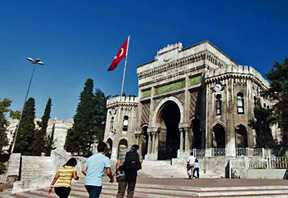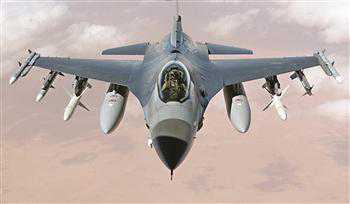Prime Minister Recep Tayyip Erdogan wants to catapult Turkey into the top 10 of the global economic elite over the next decade. To get there, he may need to spend more time mimicking the country he’s been feuding with.
While Turkey and Israel have both shifted to manufacturing from farming since the Jewish state was established in 1948, it’s Israel that has succeeded in building high-margin industries. The tech index on Turkey’s Borsa Istanbul has 16 members and a market value of about $790 million. Israel’s TA BlueTech-50 Index, in an economy less than one-third the size, is valued at $16.5 billion.
During Erdogan’s decade in power, which followed years of unstable and short-lived coalitions, inflation and interest rates plunged from more than 30 percent as the budget deficit and national debt shrank. The gains from that good housekeeping may be running out of steam, with economists and ministers saying Turkey needs an industrial breakthrough to achieve the next stage.
“Turkey is nearing the limits of what it can do with macroeconomic stability,” said Serdar Sayan, a professor of economics at the TOBB University of Economics and Technology in Ankara. The country “really needs to switch to higher value- added exports” and improve its education system to “compete with innovative countries like Israel,” he said.
Structural Work
Bulent Celebi, executive chairman and co-founder of AirTies, an Istanbul-based maker of wireless routers and Internet television technology, is one of the businessmen trying to push Turkey in that direction. While he’s optimistic about Turkey’s 2023 goals, “there’s a lot of structural work to do,” he said, including resolving the current-account deficit and producing energy domestically while economizing on its use.
Celebi said his company has been developing products with Israeli companies including France Telecom SA’s Orca Interactive Ltd. unit, a maker of software for interactive televisions, because “they are good at innovative solutions.”
“We are importing many high-tech and low-tech parts,” Celebi said in a phone interview. “We need to be able to produce them locally like China and also increase production of value-added products. Turkey needs to focus on specific sectors, like China, Taiwan and South Korea.”
Turkish-Israeli ties are in the spotlight after Israeli Prime Minister Benjamin Netanyahu phoned Erdogan on March 22, in a call arranged by President Barack Obama, to apologize for the killing by Israeli commandos of nine Turks aboard an aid ship bound for Gaza in 2010.
U.S. Aid
That incident, and Erdogan’s criticism of the Israeli military operation in Gaza that began in December 2008, strained a decades-old relationship between two of the main U.S. allies in the Middle East. Ties were built around defense, where Turkey benefited from Israel’s technological advances, buying drones and upgrading tanks.
Israel receives about $3 billion a year in U.S. military aid, of which close to 75 percent must be spent on equipment or services from U.S. companies, a rule that fosters joint technological research by the two countries. Among the largest American suppliers to Israel are Chicago-based Boeing Co., Bethesda, Maryland-based Lockheed Martin Corp. and Raytheon Co. in Waltham, Massachusetts.
Trade between Turkey and Israel has largely survived the diplomatic standoff, though it declined to $4 billion last year from a record $4.5 billion in 2011, according to Turkish government data. A decline in Turkish imports of chemicals used in manufacturing is one of the reasons, Joseph Avraham, Israel’s consul for economic affairs in Turkey, said in an e-mail.
Turkey Growth
In the Erdogan decade, Turkey became the world’s 17th- biggest economy, according to the International Monetary Fund. It posted annual average growth of 5.1 percent, compared with 4.1 percent for Israel. That’s reflected in stock-market gains, with Turkey’s benchmark index rising about 700 percent, compared with about 300 percent for the Israeli equivalent. In the previous decade, Israel, whose population is less than one-tenth the size of Turkey’s, was ahead on both counts.
Turkey hasn’t moved upwards in the global league when measured by per-capita GDP, though. In the 10 years through 2013, Turkey’s ranking by that measure remained at 67th in the world, according to the latest IMF data. Israel climbed six places to 27th.
Israeli assets are ranked as less risky by analysts, and the country was upgraded to developed-market status in 2009 by MSCI Inc., whose stock indexes are tracked by investors with about $7 trillion of assets. Israeli debt is classed as investment grade by the three main credit-rating companies, while only Fitch Ratings has given Turkish bonds that accolade.
Hot Money?
The IMF data highlight the Turkish economy’s biggest weakness, too. Since Erdogan’s party came to power in 2002, Turkey has run up a deficit on the current account, the broadest measure of trade, of about $353 billion, compared with a $32.6 billion surplus in Israel.
That’s a measure of the greater competitiveness of Israel’s economy. The gap leaves Turkey more dependent on volatile movements of short-term foreign capital to finance growth. When that so-called hot money is flowing to emerging markets, Turkish growth typically outpaces Israel’s. When investors favor safety, the Israeli economy is more resilient.
Turkish Economy Minister Zafer Caglayan says producing higher value-added goods is the only way to cut the current- account deficit. “Last year, for every kilogram of exports, Turkey’s added value was $1.58,” he said in an interview last month. “For Germany it was $4 and for Japan it was $3.50. The solution is there.”
Ballistic Technology
Turkey needs to grow at least 6 percent a year to meet the top-10 target by 2023, the centennial of the republic, Caglayan said on April 1. Growth eased to 2.2 percent last year, the slowest since a recession in 2009, after the central bank raised borrowing costs to rein in a credit boom.
Nurol Holding, based in Ankara, is one of the Turkish companies waiting for better ties with Israel so it can resume partnerships. It was an Israeli company that supplied the ballistic protection technology that Nurol’s unit FNSS Savunma Sistemleri AS used to equip the armored vehicles it makes against land mines, said Feyiz Erdogan, senior legal counselor for Nurol, in an interview.
“Israeli companies have always came up with innovative technologies,” said Erdogan, who’s no relation to the prime minister. “If relations are normalized, why shouldn’t we benefit?”
Innovative Companies
Turkey’s biggest exporters such as Vestel Elektronik Sanayi & Ticaret AS, which has about one-fifth of the European LCD television market, often import some of the highest value-added components to make their products.
“Israel has a high-tech export-oriented economy,” said Alon Liel, former director-general of Israel’s Foreign Ministry and ex-chairman of the Israel-Turkey Business Council. “Turkey, though also focused on exports, isn’t as technologically advanced as it should be.”
Government incentives are aimed at shifting some of the production, such as engines for cars, to local industry. Between 60 percent and 85 percent of the parts for Renault SA’s Turkish unit are made locally, according to the company.
An overhaul of Turkey’s education system is needed to generate more innovation, economist Sayan said. Turkey currently has a “poorly educated population” and a system that doesn’t encourage creativity, he said.
Even with success in those areas, Erdogan’s 2023 goals may be too ambitious, Sayan said: “It’s good to set targets for the country and it serves to boost public morale.” Entering the top 10, though, is probably “a dream.”





